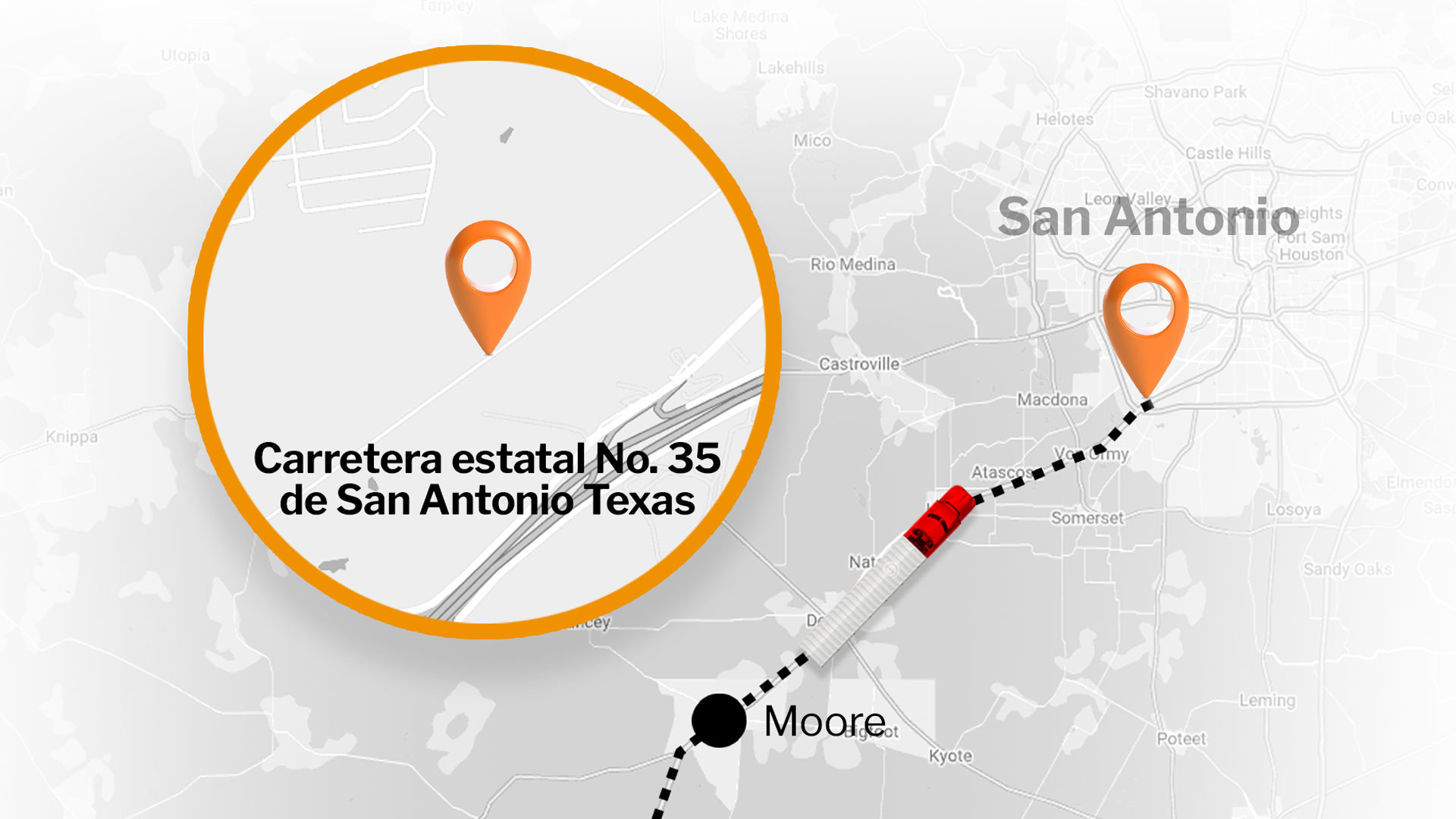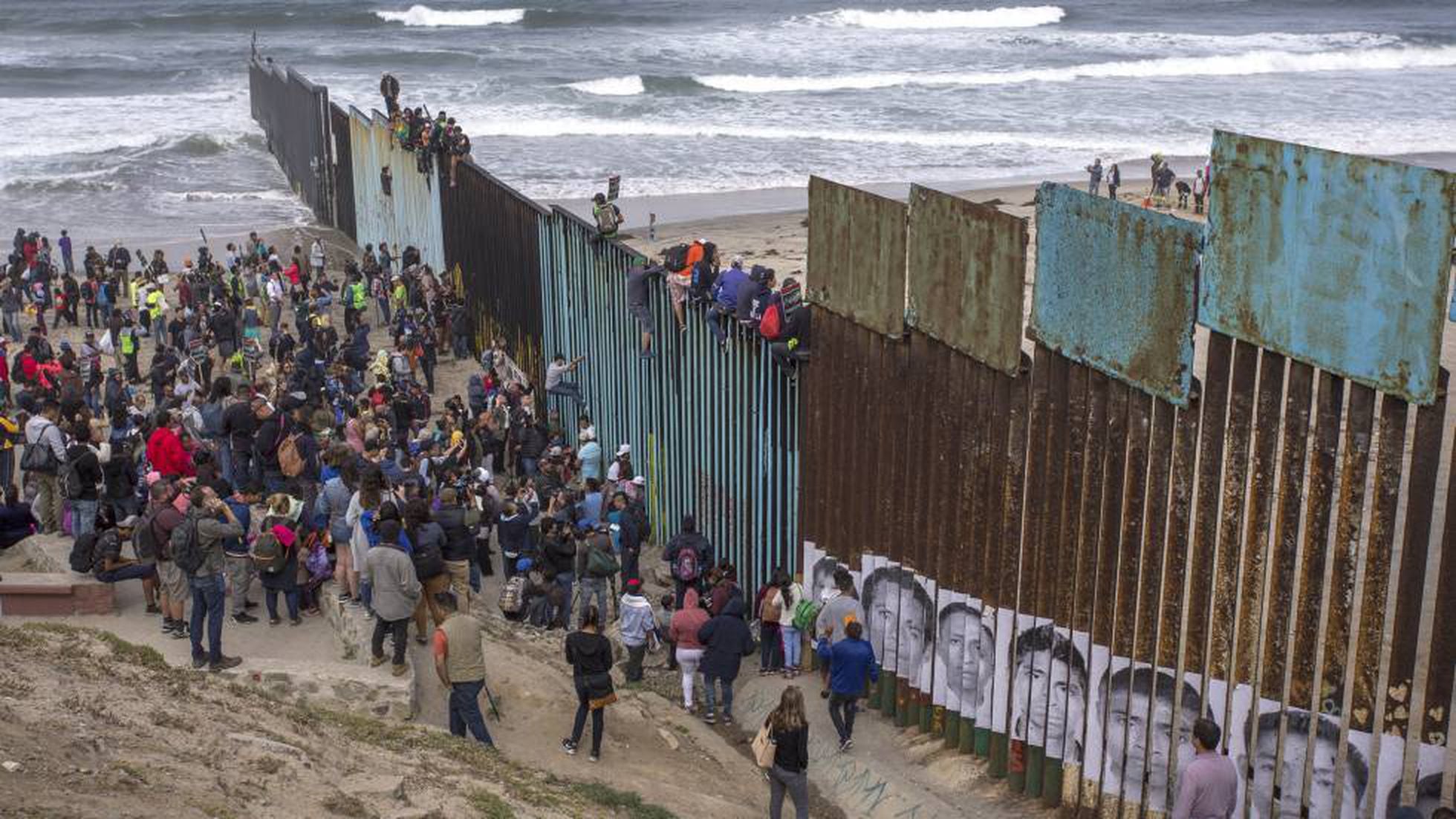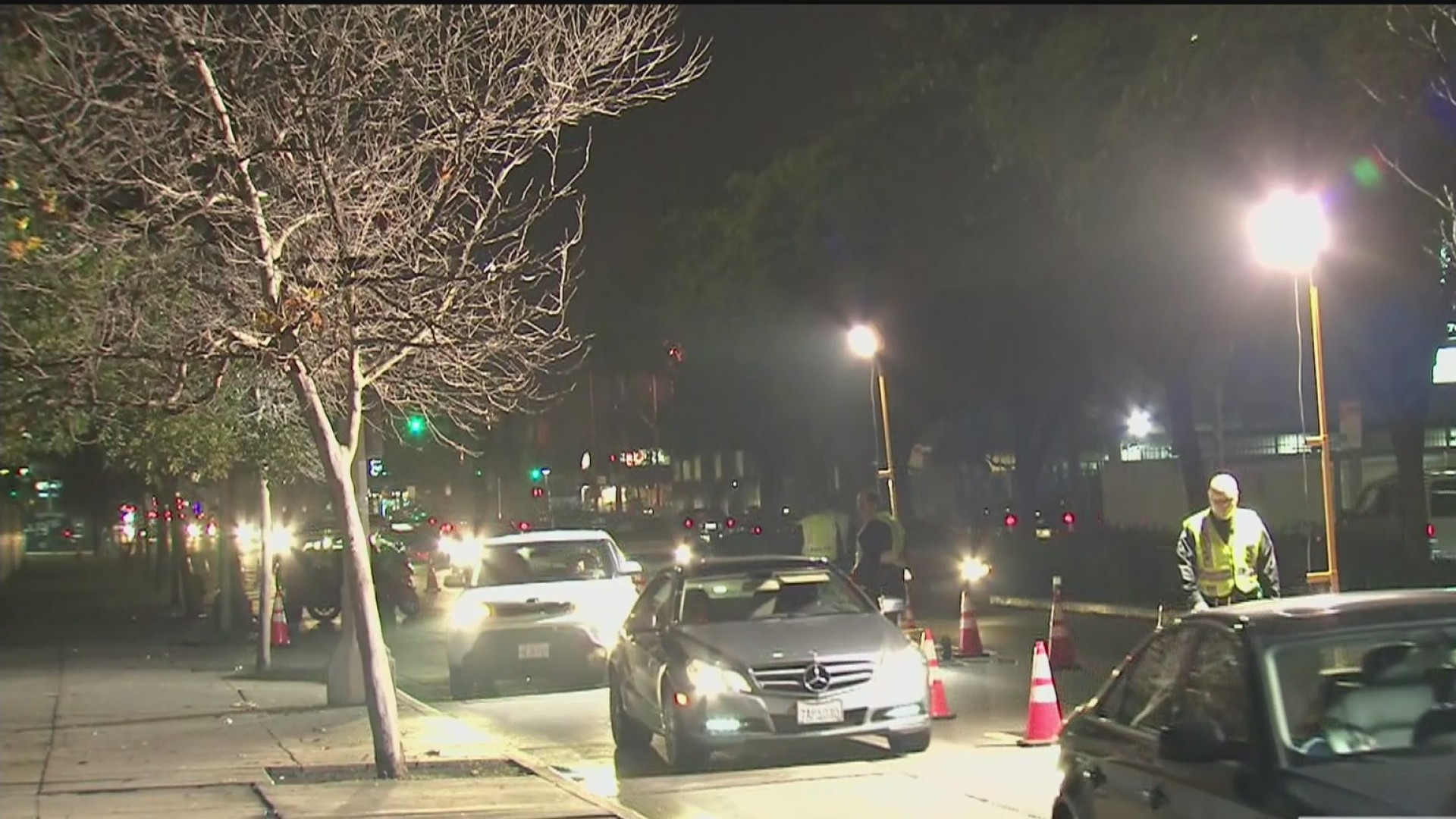Understanding Retenes De Migración: What You Should Know
Encountering a migration checkpoint, often called a reten de migracion, can feel a bit unsettling for anyone, whether you live in a place or are just visiting. It's a situation where government agents, usually immigration officers, stop vehicles or people to check their legal status. Knowing what to expect and what your rights are is pretty important, you know, for peace of mind.
These checkpoints are, in a way, a common sight in certain areas, especially near borders or along major travel routes. They are set up to help control who comes and goes, and to make sure everyone present has the proper papers. So, understanding how they work can really make a difference, actually.
This guide aims to shed some light on what these stops involve, what you can do, and how to feel more prepared if you come across one. It's about feeling ready, rather than surprised, which is a good thing to be, generally.
- Genesis Lopez Sex
- Oops I Crapped My Pants
- Opposites Attract Dti
- Ashtin Earle Amazon Storefront
- Rst Diesel Performance Reviews
Table of Contents
- What Are Retenes de Migración?
- Your Rights at a Checkpoint
- What to Do If You Are Stopped
- Common Misconceptions
- FAQ About Migration Checkpoints
What Are Retenes de Migración?
Retenes de migracion are essentially stops put in place by immigration or border protection agencies. They are designed to check the immigration status of people. This happens a lot, actually, and it's part of how governments manage their borders.
These spots are often temporary, meaning they can pop up anywhere at any time, though some are more permanent structures. They are, in a way, a tool for authorities to make sure everyone is following the rules, so to speak.
You might see them on highways, near entry points, or sometimes even deep inside a country. It’s a pretty common practice in many places, generally speaking.
- What Does Purple And Blue Make
- Cane Corso Husky Mix
- Noah Kahan New Album
- Llips Mukbang Death
- Rizzo From Grease
Purpose of Checkpoints
The main idea behind these checkpoints is to uphold immigration laws. They help agents find people who might be in a country without proper permission. So, it's about keeping things in order, you know.
They also play a part in preventing other kinds of illegal activities, like smuggling. It's a broad effort, you could say, to keep everyone safe and follow the rules, which is pretty important.
These stops also help gather information about migration patterns. This data can then inform policy decisions, so it's a little more involved than just checking papers, apparently.
Where They Happen
You typically find retenes de migracion in areas that are, in some respects, sensitive for border security. This includes roads leading away from international borders. It's just a common spot for them, naturally.
Sometimes, they appear at ports, airports, or even bus stations. Any place where people move around a lot can be a spot for one, you know, for checking purposes.
The exact location can change, too. Authorities might move them around to be more effective, so it's not always the same spot, which is something to keep in mind, generally speaking.
Your Rights at a Checkpoint
Knowing your rights when you come across a reten de migracion is super important. It helps you act correctly and protect yourself. This knowledge can give you a bit of calm, you know, when facing something like this.
Every person, regardless of their status, has certain protections under the law. It's not just about what agents can ask, but also what you are not required to do, which is pretty vital, actually.
These rights are in place to make sure everyone is treated fairly and with respect. So, understanding them is, arguably, a first step in feeling more secure, anyway.
Staying Calm and Polite
When you approach a checkpoint, keeping your composure is really key. A calm attitude can help the situation go smoothly. It's just a better way to handle things, generally.
Being polite to the officers is also a good idea. Even if you feel nervous, a respectful demeanor can help a lot. It makes the interaction easier for everyone involved, you know.
Remember, officers are doing their job, and your cooperation within your rights can prevent misunderstandings. So, a little bit of courtesy goes a long way, apparently.
Providing Documents
Officers will usually ask for your identification and documents that show your immigration status. Having these ready can speed things up a lot. It’s just a practical step, actually.
This could be a passport, a visa, a green card, or other official papers. Make sure they are current and valid, you know, as of today.
You should hand over the documents when asked, but you don't necessarily have to say more than necessary. Just show them what they need to see, which is pretty straightforward, generally.
Refusing Searches
Generally, officers cannot search your vehicle or belongings without a warrant or your permission. This is a pretty important right to remember. So, you can say no to a search, basically.
If they ask to search, you can clearly state that you do not consent to a search. You don't have to explain why, either. It's your right, you know.
However, if they have probable cause or a warrant, they might proceed with a search anyway. In that case, do not resist physically, but state that you do not consent, which is still important, actually.
Right to Remain Silent
You have the option to remain silent if you are questioned about your immigration status or anything else. You don't have to answer every question they ask. This is a pretty big deal, you know.
You can simply state, "I choose to remain silent." This applies to questions beyond just identifying yourself. It's a protection for you, basically.
However, you must provide your name and show your documents if asked. Beyond that, you can keep quiet, which is something many people forget, apparently.
Seeking Legal Help
If you feel your rights are being violated, or if you are detained, you have the right to speak with a lawyer. This is a very important right to remember. So, ask for legal help if you need it, obviously.
You can say, "I would like to speak with an attorney." Do this as soon as you feel it's necessary. It's your right, you know, to get proper advice.
Having contact information for an immigration lawyer or a legal aid organization can be very helpful. It's good to be prepared, generally speaking. You can find more information about legal support on a reputable site.
What to Do If You Are Stopped
Being stopped at a reten de migracion can be a little nerve-wracking, but knowing what steps to take can make it much easier. It's about being prepared, really, for what might happen.
These tips are pretty practical and can help you handle the situation with more confidence. So, let's go over some basic actions, anyway.
Remember, the goal is to get through the checkpoint smoothly while protecting your rights. It's a balance, you know, between cooperation and caution, basically.
Prepare Your Documents
Before you even get to a checkpoint, make sure your identification and immigration documents are easily accessible. This saves time and shows you are ready. It's just a good habit, actually.
Keep them in a place where you can grab them quickly, like your glove compartment or a dedicated folder. This avoids fumbling around, which can sometimes cause delays, you know.
Check that all your documents are valid and not expired. An expired document can lead to more questions, which you probably want to avoid, generally speaking.
Stay Inside Your Vehicle
Unless an officer specifically tells you to get out, it's best to stay inside your car. This keeps the situation controlled and clear. So, just wait for instructions, pretty much.
Keep your hands visible, perhaps on the steering wheel, so officers can see them. This shows you are not a threat, you know, and helps them feel more at ease.
Do not make any sudden movements or reach for anything quickly. Just act calmly and follow directions, which is a pretty simple rule to follow, apparently.
Answer Questions Carefully
When an officer asks questions, answer truthfully but concisely. Do not offer extra information that isn't asked for. It's just better to keep it brief, really.
For example, if they ask about your citizenship, state it clearly. If they ask where you are going, you can give a simple answer. You know, just the facts, basically.
If a question feels like it's going beyond what's necessary, you can always say you prefer not to answer or that you want to speak with a lawyer. It's your right, after all, and stuff.
Record the Encounter
In many places, you have the right to record interactions with law enforcement in public spaces. This can be a good way to protect yourself. So, you can use your phone, for example.
If you choose to record, do so openly and do not try to hide it. Inform the officer that you are recording for your own protection. This makes things transparent, you know.
A recording can serve as evidence if there are any disputes about what happened during the stop. It's a way to document things, which is pretty useful, generally speaking.
Common Misconceptions
There are quite a few ideas floating around about retenes de migracion that aren't always true. Clearing up these misunderstandings can help people feel less worried. It's pretty common to hear things that aren't quite right, you know.
One common thought is that you always have to answer every single question an officer asks. That's not always the case, as we've discussed. You have rights, after all, basically.
Another idea is that if you are stopped, you are automatically in big trouble. This is also not true. Many stops are routine and go very quickly. It's just a check, generally speaking.
Some people believe that agents at these checkpoints can just search your car whenever they want without any reason. But, as we talked about, there are rules about searches. They need a reason or your permission, you know.
Also, the idea that only certain people get stopped is a bit of a myth. Anyone can be pulled over at a checkpoint, regardless of their background. It's just how these things work, apparently.
Finally, some think that if you are a citizen, you don't need to carry any documents. While citizens have more rights, having ID can make the process much faster and smoother. It's just practical, you know, to have it ready.
Understanding these points can help you approach a checkpoint with a clearer head and less unnecessary fear. It's about knowing the facts, which is pretty empowering, actually.
FAQ About Migration Checkpoints
Here are some common questions people often ask about retenes de migracion. Getting clear answers can really help. So, let's look at a few, you know.
What is the difference between a border patrol checkpoint and a regular traffic stop?
A border patrol checkpoint, like a reten de migracion, is set up specifically by immigration authorities to check immigration status. A regular traffic stop, on the other hand, is usually done by local police for a suspected traffic violation, like speeding. They are, in a way, different kinds of stops, you know.
At a migration checkpoint, the primary goal is immigration enforcement. At a traffic stop, it's about road safety or other local laws. So, the reasons for stopping you are different, generally speaking.
Your rights can also vary slightly depending on whether it's an immigration checkpoint or a local police stop. It's important to know which kind it is, basically.
Can I be asked about my citizenship if I am a passenger in a car?
Yes, an officer at a reten de migracion can ask passengers about their citizenship. Everyone in the vehicle is subject to the stop. So, be ready to answer, you know.
You should be prepared to state your citizenship or show documents if you are not a citizen. It's part of the process for everyone present, actually.
Remember your right to remain silent beyond basic identification. You don't have to talk about other things, which is pretty helpful, anyway.
What if I don't have my documents with me at the time of the stop?
If you don't have your documents, the situation could become a bit more complicated. Officers might detain you while they verify your status. It's just how it works, you know, to confirm things.
They might ask you more questions or take you to a secondary inspection area. This is why having your documents ready is so important. It can save you a lot of time and trouble, basically.
If you are detained, remember your right to contact a lawyer. This is a very important step to take, honestly, if things get serious. You can learn more about your rights in these situations on this page.



Detail Author 👤:
- Name : Mathilde Schroeder
- Username : zemlak.pete
- Email : wgoldner@hoeger.com
- Birthdate : 1975-05-17
- Address : 9494 Delta Ridges Suite 129 West Alana, DE 41878
- Phone : +1 (754) 323-3754
- Company : DuBuque-Goodwin
- Job : Jewelry Model OR Mold Makers
- Bio : Ut corporis temporibus exercitationem occaecati soluta quia. Aut perspiciatis vel et quod aut. Nostrum sed odio earum perspiciatis nostrum.
Socials 🌐
twitter:
- url : https://twitter.com/medhurst1979
- username : medhurst1979
- bio : Impedit et nihil quia ea id. Ut aut laboriosam cupiditate qui beatae aliquid. Autem id sunt aspernatur placeat et sit.
- followers : 2896
- following : 727
tiktok:
- url : https://tiktok.com/@medhurst1999
- username : medhurst1999
- bio : Maxime quo optio cum provident. Quas architecto ipsum est corrupti.
- followers : 3814
- following : 1319
linkedin:
- url : https://linkedin.com/in/dock_official
- username : dock_official
- bio : Adipisci sint ipsa sit alias.
- followers : 6599
- following : 1630
facebook:
- url : https://facebook.com/dock.medhurst
- username : dock.medhurst
- bio : Labore possimus assumenda sit enim iste fugit saepe.
- followers : 2308
- following : 303
instagram:
- url : https://instagram.com/dock.medhurst
- username : dock.medhurst
- bio : Quod error id beatae est. Aliquam omnis omnis hic temporibus. Enim hic praesentium totam.
- followers : 6260
- following : 498